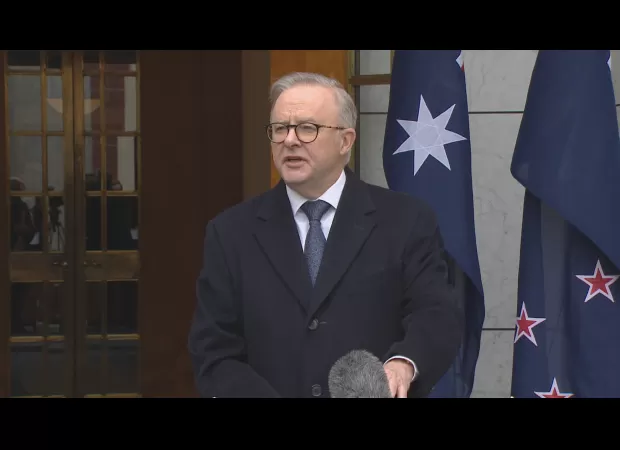Warfare is evolving as cyber-attacks could potentially activate the military treaty between Australia and New Zealand.
Australia and New Zealand have agreed to defend each other if faced with a serious cyber attack.

During a joint press conference today, the prime ministers of Australia and New Zealand addressed the potential of a cyber attack causing a joint response from the two countries. Prime Minister Anthony Albanese and his New Zealand counterpart Chris Luxon spoke in Canberra about their ongoing partnership and the importance of working together in defense matters.
Both leaders acknowledged the current strategic circumstances in the Pacific region and highlighted their plan to increase cooperation and "work in lockstep" on defense issues. They also emphasized the increasing role of cyberspace in enhancing cooperation, especially in tackling cyber attacks.
"We discussed the vital role of international law in cyberspace and the potential for a cyber attack on either country to be considered an attack under article four of the ANZUS Treaty," said Albanese.
The ANZUS Treaty, which was originally signed in 1951 between Australia, the US, and New Zealand, has since been represented by two separate treaties between Australia and New Zealand, and Australia and the US. Article four of the treaty states that each party recognizes the danger of an armed attack in the Pacific Area and declares their commitment to act accordingly.
Luxon confirmed that the alliance between the two countries could be activated in the face of a "sufficiently severe cyber attack."
"In today's modern warfare, cyberspace is a crucial battleground and should New Zealand experience a severe cyber attack, we would invoke our arrangements under the ANZUS Treaty," said Luxon.
Albanese also stressed that any potential attack would be evaluated on a case-by-case basis and that a cyber attack can have just as much impact as a traditional attack.
"The way we perceive warfare is changing. An attack on the economy can have far-reaching consequences for an entire society," he said.
The two leaders also discussed the ongoing efforts to improve travel and work between the two countries, but not everything was smooth sailing. Luxon brought up the issue of Australia deporting criminal offenders to New Zealand, whose formative experiences were mostly in Australia.
"Prime Minister Albanese and I have agreed to closely engage on this matter," said Luxon.
When asked about this policy clash by a reporter, Albanese reiterated the importance of respecting each other's positions and looking out for their own national interests.
"While we may not always see eye to eye, we have a common purpose and respect each other's positions," said Albanese.
In addition to their discussions on defense and immigration policies, the two leaders also spoke about their shared goal of achieving seamless integration between Australia and New Zealand. They also encouraged people to follow their WhatsApp channel for the latest breaking news, celebrity updates, and sports news without any comments or algorithms.
24 Views






